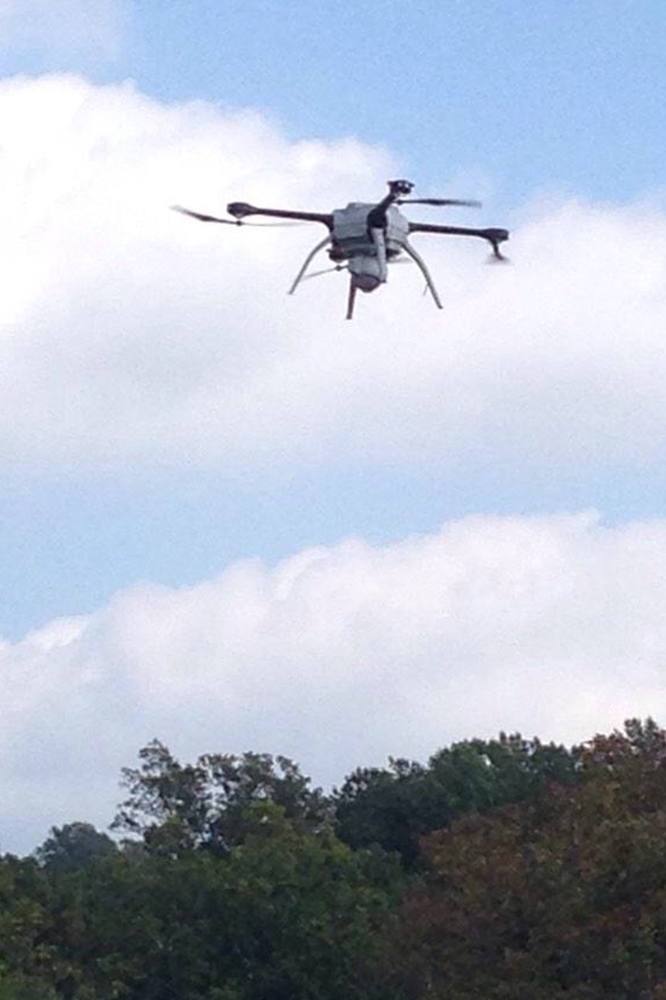Researchers to begin work with news organizations in an effort to advance aerial journalism

Leaders with the Mid-Atlantic Aviation Partnership at Virginia Tech have outlined a research plan to study how reporters could use unmanned aircraft to gather news.
Last week, the 11th member joined a coalition of news organizations partnering with Virginia Tech to research real-life scenarios where reporters could use small unmanned aircraft.
Advance Publications Inc., A.H. Belo Corp., the Associated Press, Fusion, Gannett Co. Inc., Getty Images, NBCUniversal, The E.W. Scripps Company, The New York Times Co., Sinclair Broadcast Group Inc., and The Washington Post are united in the research.
“This coalition represents significant media organizations, leaders of the industry,” said Rose Mooney, executive director of the Mid-Atlantic Aviation Partnership at the Institute of Critical Technology and Applied Science at Virginia Tech. “Working together, we have a way forward toward the development of legitimate, commercial uses of the technology."
Mid-Atlantic Aviation Partnership leaders say they will work with users and the Federal Aviation Administration to determine equipment and training needs.
During the course of the research, classroom training will be followed by hands-on instruction, during which media representatives will be trained to fly their aircraft.
Research flights will begin in isolated, rural areas and progress through semi-urban and urban areas.
Pending FAA approval, the effort may create a path for news organizations to receive a Section 333 exemption, which allows for unmanned systems operations to begin while the larger, regulatory framework for unmanned aircraft is still being worked out.
“Newsgathering operations were the first to contact us to find ways to take advantage of unmanned aircraft systems technologies,” said Jon Greene, the acting associate director of the Mid-Atlantic Aviation Partnership and an associate director of the Institute for Critical Technology and Applied Science. “Our role is to be an honest broker for the Federal Aviation Administration, to make sure we’re doing things safely.”
The Federal Aviation Administration selected Virginia Tech in December, 2013, as one of six national test programs to conduct research to integrate unmanned aircraft into the nation’s airspace.
Operating under the banner of the Mid-Atlantic Aviation Partnership, the program includes test sites in Virginia, New Jersey, and Maryland, more than 100 industry partners, and Virginia Tech, Rutgers University, and the University of Maryland.
Dedicated to its motto, Ut Prosim (That I May Serve), Virginia Tech takes a hands-on, engaging approach to education, preparing scholars to be leaders in their fields and communities. As the commonwealth’s most comprehensive university and its leading research institution, Virginia Tech offers 240 undergraduate and graduate degree programs to more than 31,000 students and manages a research portfolio of $513 million. The university fulfills its land-grant mission of transforming knowledge to practice through technological leadership and by fueling economic growth and job creation locally, regionally, and across Virginia.








